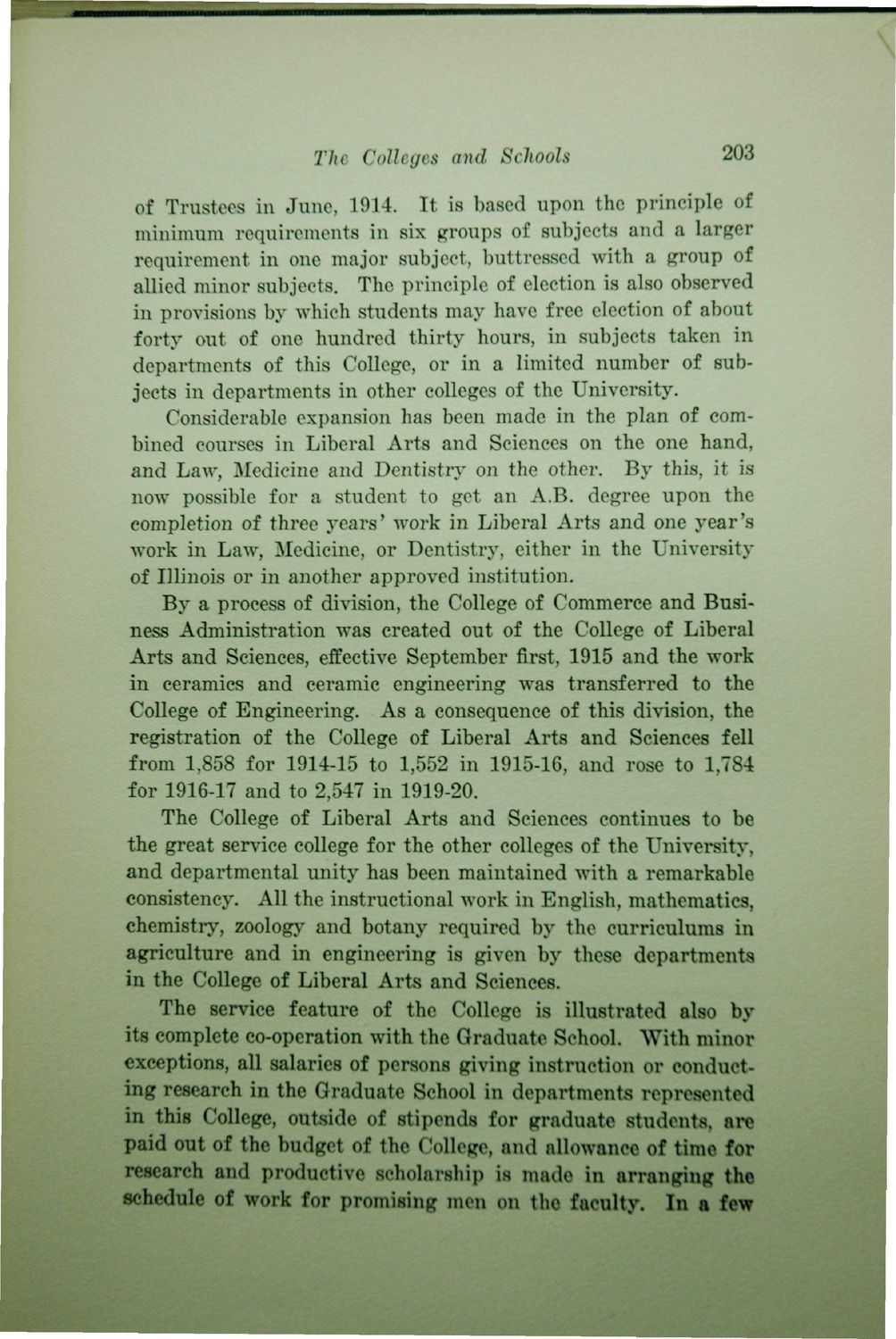| |
| |
Caption: Book - 16 Years (Edmund James)
This is a reduced-resolution page image for fast online browsing.

EXTRACTED TEXT FROM PAGE:
The Colleges and Schools 203 of Trustees in June, 1914. It is based upon the principle of minimum requirements in six groups of subjects and a larger requirement in one major subject, buttressed with a group of allied minor subjects. The principle of election is also observed in provisions by which students may have free election of about forty out of one hundred thirty hours, in subjects taken in departments of this College, or in a limited number of subjects in departments in other colleges of the University. Considerable expansion has been made in the plan of combined courses in Liberal Arts and Sciences on the one hand, and Law, Medicine and Dentistry on the other. By this, it is now possible for a student to get an A.B. degree upon the completion of three years' work in Liberal Arts and one year's work in Law, Medicine, or Dentistry, either in the University of Illinois or in another approved institution. By a process of division, the College of Commerce and Business Administration was created out of the College of Liberal Arts and Sciences, effective September first, 1915 and the work in ceramics and ceramic engineering was transferred to the College of Engineering. As a consequence of this division, the registration of the College of Liberal Arts and Sciences fell from 1,858 for 1914-15 to 1,552 in 1915-16, and rose to 1,784 for 1916-17 and to 2,547 in 1919-20. The College of Liberal Arts and Sciences continues to be the great service college for the other colleges of the University, and departmental unity has been maintained with a remarkable consistency. All the instructional work in English, mathematics, chemistry, zoology and botany required by the curriculums in agriculture and in engineering is given by these departments in the College of Liberal Arts and Sciences. The service feature of the College is illustrated also by its complete co-operation with the Graduate School. With minor exceptions, all salaries of persons giving instruction or conducting research in the Graduate School in departments represented in this College, outside of stipends for graduate students, are paid out of the budget of the College, and allowance of time for research and productive scholarship is made in arranging the schedule of work for promising men on the faculty. In a few
| |